Since the start of the war in Ukraine, several Russian politicians have begun to communicate in more aggressive tones, meanwhile people that had been previously considered to be marginals or too radical are now appearing at the forefront of society. Novaya Gazeta. Europe reviewed the changes in the behaviour of different politicians and asked political scientists which of them are currently influencing the Russian wartime decision-making.
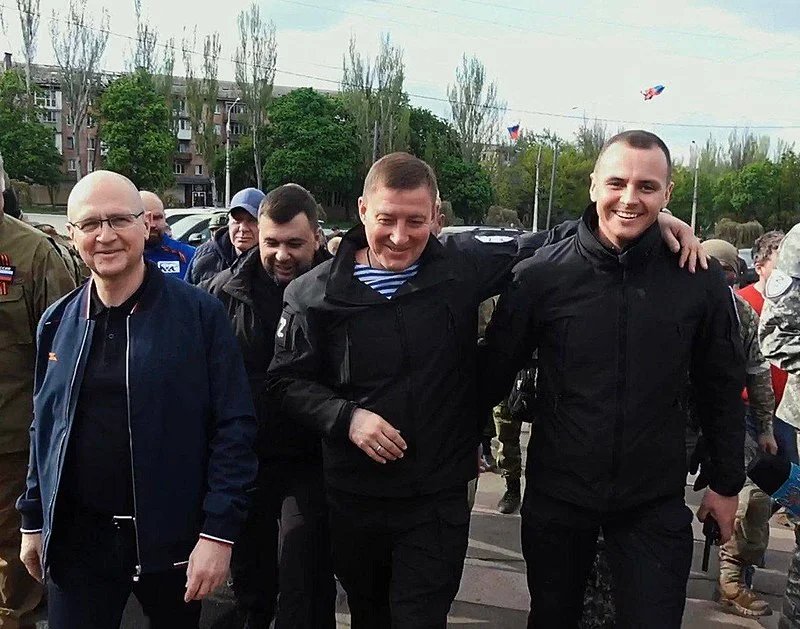
Sergey Kiriyenko, Denis Pushilin, Andrey Turchak and Sergey Prokopenko (left to right). Photo: Wikipedia
Since 24 February, all official and unofficial voices of war — government officials, pro-government propagandists, legitimate politicians — have begun to express themselves in quite radical ways, often in a very rude manner. In the past, eight years ago, the role of warmongers was given to “men of the people”, Igor Strelkov to name one; now, all Russian politicians have decided to join in. “All the politicians that are part of the system have started to proclaim in different ways things that they had never said before. It seems that the role of the deceased Zhirinovsky is now being played by all the remaining politicians. People are fighting for the right to be the next Zhirinovsky, and many end up looking quite ridiculous,” says political scientist Fedor Krasheninnikov.
His theory is that this political intensification could have taken place due to them realising that Putin wants to see his decisions being supported. “It’s possible that some people have to partake in this to a much greater extent than they would like to; many others are staying silent: deputies and senators, for example. It seems that the people that want to have access to a better future consider it their duty to double the amount of jumping through the hoops and screaming out the slogans,” notes the expert.
It is important to understand the difference between influential and visible politicians. The first ones have real influence on the decisions being made, while the second ones only make it look like they do through media statements and Telegram posts, says political analyst Nikolai Petrov. “There are people that constantly make statements and show up on the news, but it does not mean that they have suddenly become more influential,” he explains.
These people actively support the war on the news and social media but they do not take part in the decision-making process and do not have the resources that would let them play a significant role, such as being close to Putin or being able to communicate with him.
Ramzan Kadyrov
Ramzan Kadyrov has been serving as the Head of the Chechen Republic for over 15 years — since 2007. During that time, journalists and human rights defenders have repeatedly covered the human rights violations happening in Chechnya, led by Ramzan, Akhmad Kadyrov’s son and member of the United Russia party.
In 2017, Novaya Gazeta reported that LGBT people were tortured and killed in special prisons in Chechnya. And a few weeks before the start of the war, Chechen policemen kidnapped a retired judge Yangulbaev’s wife. Zarema Musaeva was accused of allegedly using violence against a police officer and put in a pre-trial detention facility. At the same time, Kadyrov himself threatened the Yangulbaev’s family, proclaiming that “this family will be put either in jail or under ground”. Later on, he called Novaya Gazeta journalist Elena Milashina and human rights defender Igor Kalyapin “terrorists”.
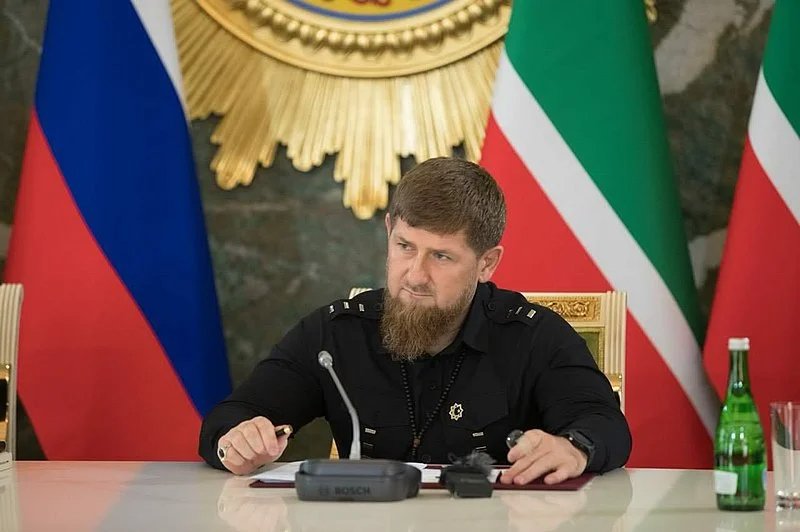
Ramzan Kadyrov. Photo: SKFO.gov.ru
Even after the war in Ukraine had started, Kadyrov remained a rather prominent Russian political figure. BBC Russian Service claims that even before the start of the military operation, a man with Kadyrov’s voice was discussing the war with, allegedly, First Deputy Director of the Chechen Department of Russia’s National Guard Daniil Martynov. Also, Chechnya’s leader has a personal special regiment named after his father Akhmad Kadyrov. Ramzan sent the regiment to fight in the war in Ukraine. Even though, officially, the regiment reports to Russia’s Ministry of Internal Affairs, in practice, Kadyrov personally controls and reports its actions. Among the Chechens that are fighting on the Russian side of the war, there is Ruslan Geremeev, the man who was a suspect in Boris Nemtsov’s assassination. Geremeev was wounded during the capture of Mariupol at the end of March.
Kadyrov actively posts on his Telegram channel, where, after 24 February, he constantly makes statements on the topics of the Russian army warfare in Ukraine and the political situation in Russia and the world. For example, Kadyrov wrote about the “liberation of Mariupol” at least 26 times, even though the city was captured by the Russian army only in May. He also claimed that he visited the combat zone himself, but that statement was impossible to fact-check.
At the St. Petersburg International Economic Forum, Kazakh President KassymJomart Tokayev declared that he was not going to recognise the self-proclaimed Luhansk and Donetsk “people’s republics” (“LDPR”). After, Kadyrov accused the leaders of the Collective Security Treaty Organisation countries of not having a common position on Ukraine (although, later, he suddenly recorded something resembling an explanation to Kazakhstan that sounded more like an apology).
Political analyst Nikolai Petrov thinks that after the start of the war, Kadyrov’s political influence rose up a great amount. “Kadyrov went from an exotic regional leader to an important figure at the federal level. Today he is one of the most active commentators [of the war], which is noticeable by the number of awards he has got and the titles he has received. He is one of the people whose contributions are acknowledged by Putin,” says Petrov. According to the expert, Russia does not have another politician like Kadyrov: “He’s simultaneously the head of a region, even if the region isn’t the biggest, it’s quite influential, and also the head of the military. And today, he exploits the fact that he has tens of thousands of armed soldiers ready to follow his orders under his command.”
For his part, Fedor Krasheninnikov notes that Kadyrov was always quite a prominent political figure. “He has a role to play — he is the “bad cop”. After Kadyrov, Putin starts to seem like quite a moderate and calm politician, one starts to think that he can be reasoned with. And if you don’t want to deal with Putin, well, you’ll have to deal with Ramzan Kadyrov,” says the political scientist. However, Krasheninnikov is certain that Kadyrov will never be able to replace Putin in the role of the Russian president.
Dmitry Medvedev
From 2008 to 2012, Dmitry Medvedev served as Russia’s president. He was seen as the liberal leader of the country: while president, he met with young bloggers and Barack Obama, and made diplomatic connections with the US and Europe. After 2012, Medvedev gave his post back to Vladimir Putin, while he became prime minister and the leader of the United Russia party. In 2017, Navalny’s Anti-Corruption Foundation released a documentary film Don't Call Him Dimon (Dimon is another way to say Dmitry in Russian — translator’s note) and accused the ex-president of corruption. The investigation led to multiple protests against Medvedev, Putin, and other government officials — the majority of protestors were young people. Several participants of the Moscow protests received actual prison sentences for “using violence” against policemen. Three years later, Medvedev’s government resigned ahead of the implementation of amendments to the Russian Constitution, which allowed Putin to run for another two terms. After, Medvedev took the post of Deputy Chairman of the Security Council, created specifically for him.
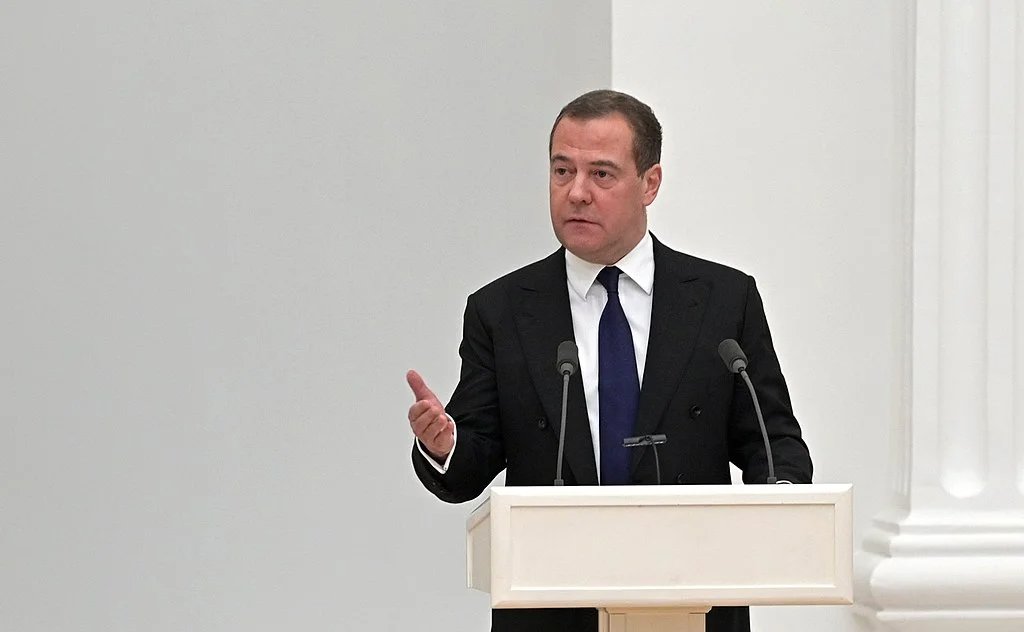
Dmitry Medvedev. Photo: Kremlin
On 22 February, as did all the other members of the Security Council, Medvedev supported the recognition of the “LDPR”, while the start of the war saw his son Ilya come back from the US and join United Russia. However, Medvedev has not visited the occupied territories since the beginning of the war.
After Facebook and Instagram had been blocked in Russia, Medvedev started to actively use his Telegram channel where he often speaks on the topic of the war in Ukraine. It was there, for example, that he talked about the “degradation of European politics” and sanctions, while one of his posts, where Medvedev explains why he uses such strong language nowadays, has become a meme.
“This figure is absolutely apolitical, it’s a little bit of a clown character, which draws attention. He is this famous lonely person that spends his time on social media and has zero influence. And to draw more attention to himself, he went rogue,” says Nikolai Petrov.
Fedor Krasheninnikov agrees that Medvedev should not be seen as an influential figure.
“Everyone has to act more radically than Putin, so that Putin can say whatever he wants. Obviously, Medvedev was one of the people chosen for this “frightening” role. When compared to such political elites, even Putin appears to be quite neutral,” he reflects.
Political scientist Krasheninnikov thinks that with his sharp, loud statements Medvedev also “washes off” his past liberalism: “In the past, Medvedev was the best hope of the system’s liberals and was even one of them, he was, at one point, almost Putin’s rival. Now, he has to commit to proving that he’s a natural fascist-putinist. All the conspiracies on the topic of his behaviour agree on one thing: politicians have to prove to Putin that they are not plotting a coup and they do not like the West. They have to prove that they’re ready to throw away their long-standing liberal reputation on first command, stump on it, and then turn into a fascist.”
Andrey Turchak
Since 2020, Andrey Turchak holds the post of First Deputy Chairman of the Federation Council, he was also previously appointed United Russia’s Secretary-General and he holds that position to this day. While governor of the Pskov region, in 2010, Turchak got offended at what journalist Oleg Kashin had written about him in his blog and asked for an apology, which Kashin refused to give. After that, the journalist was attacked and beaten with a rebar: according to Kashin and his assaulters, it was Turchak who had organised the attack.
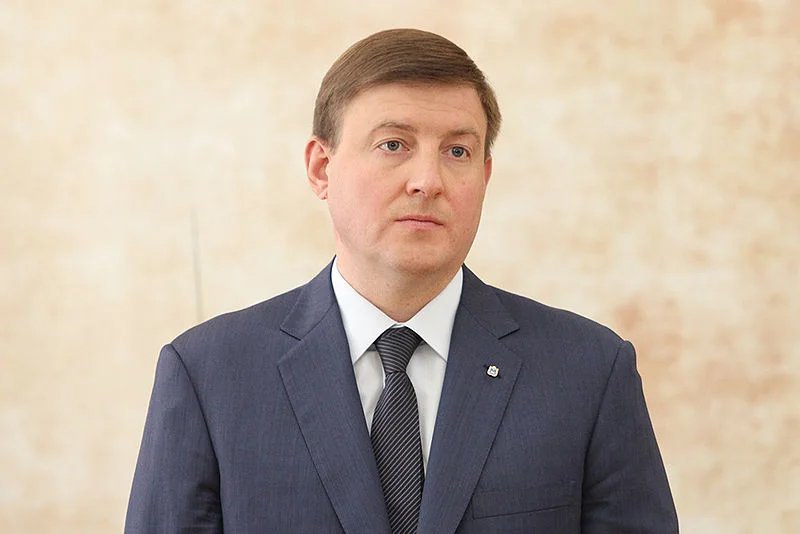
Andrey Turchak. Photo: Wikipedia
After the start of the war with Ukraine, Turchak has visited the occupied territories several times — for example, Kherson and Donetsk. There, he met with the locals and opened the United Russia “centres of humanitarian aid”. He also supported other members of United Russia visiting these territories, despite the objections of Vyacheslav Volodin.
Turchak said that United Russia branches will open in the “LDPR” after the Ukrainian regions have become part of the Russian Federation, while now, the party “will appoint deputies and senators responsible for harmonisation of legislation to every territory of Donbas”. He also proclaimed that the Kherson and Zaporizhzhia regions of Ukraine would “enter Russia” in the future. “People want protection, stability, to finally have long-awaited peace after eight years of surviving the Banderites terror supported by the West,” Turchak told Russian state news agency RIA Novosti in an interview.
Fedor Krasheninnikov says that he does not completely understand Turchak’s role in the war but he guesses Turchak’s reasons for this level of propaganda mongering are to do with his career ambitions or “an order from the top, saying that everyone has to speak as loudly as possible”. “Turchak comes from Putin’s inner circle. If he, for some reason, didn’t want to deal with this, he wouldn’t have to. Obviously, he is doing this willingly and sees it as an opportunity: Turchak’s position isn’t very visible, while war means new job openings and a chance to become closer to Putin. He likes the publicity, so he is seizing the moment,” explains Krasheninnikov.
According to Nikolay Petrov, Turchak would like to replace Valentina Matvienko as Chairman of the Federation Council.
“Formally, he holds an important post in United Russia, but seeing as nowadays United Russia doesn’t function as a real party, Turchak, likewise, plays the role of an abstract important figure that makes loud statements, yet doesn’t seem to hold much weight,” says the expert.
Vyacheslav Volodin
Volodin has been serving as Chairman of the State Duma for over five years, since 2016. Before that, he served as First Deputy Chief of Staff of the Presidential Administration and United Russia’s Secretary-General. While acting as Duma’s chairman, Volodin repeatedly spoke out in support of the adoption of laws that increased repressions in Russia: recently, he personally submitted a bill on fines for “LGBT propaganda” amid adults for committees’ examination, to later review it in the State Duma. Volodin was also repeatedly accused of corruption: in 2018 and 2021, Navalny’s Anti-Corruption Foundation released investigative documentaries about Volodin’s sources of income and real estate properties.
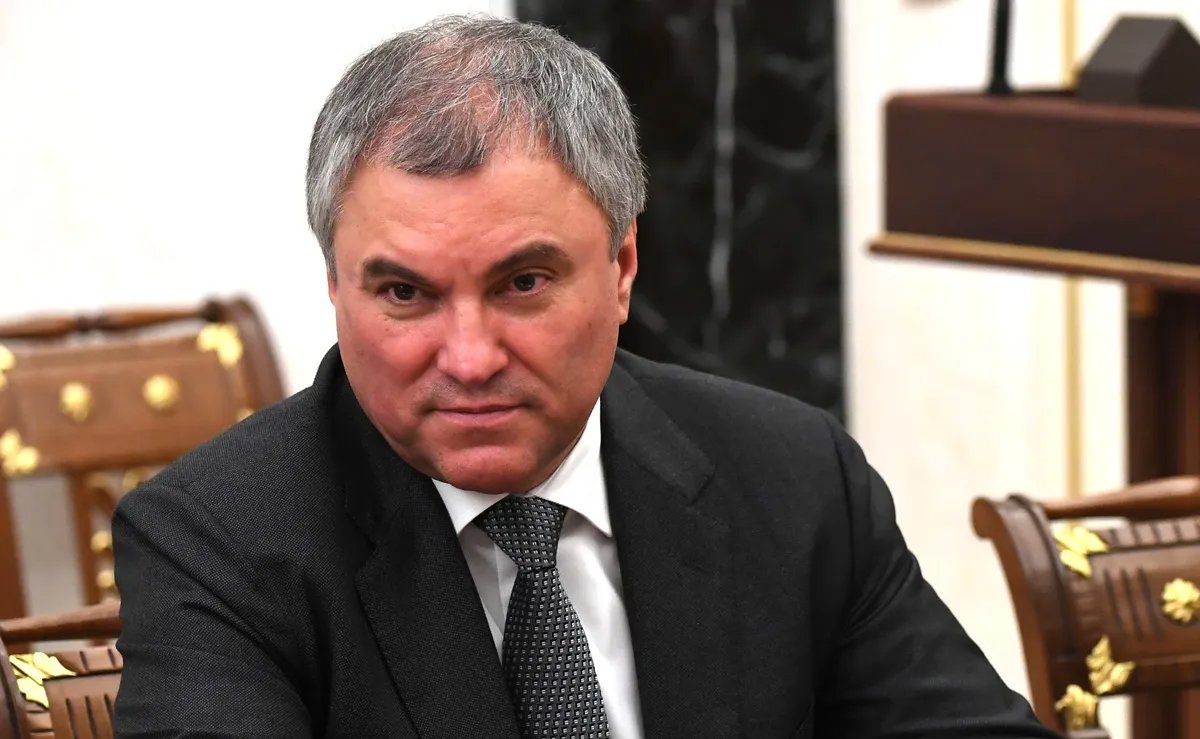
Viacheslav Volodin. Photo: Kremlin
Volodin is also a permanent member of the Security Council; on 21 February, during the extraordinary meeting, he supported the recognition of the “LDPR”. Before, it was the State Duma that had approved, in three readings, the Communist Party deputies appeal asking for the recognition of the “LDPR”. After the start of the war, Volodin has not visited the occupied territories, but he does constantly comment on the topic of warfare on his Telegram channel and during the Duma sessions.
In April, Volodin proposed firing government officials that criticise the war in Ukraine. “You can’t call this anything but betrayal. They have a voice, but they do not have any conscience,” he wrote back then (at the end of Jule, he said that the first ones to go should be university professors). At that time, he also proposed revoking citizenship of the Russians that “act treacherously”, despite the fact that denationalisation is prohibited by the Russian Constitution. Later on, he said that “Nazi criminals shouldn’t be subjected to exchange” and that he supports the preservation of capital punishment in the occupied territories. “DPR has a law that should be preserved. Especially during wartime. <...> Death penalty is the punishment these fascists deserve,” he wrote on his Telegram channel.
“In the past, Volodin was a person that always supported centrism — he was the perfect candidate-commander to say “let’s all come together around the president”. Later, he started to become more radicalised, because you cannot hold such an important post and not be a radical; he should be able to confidently declare the things that the government needs him to say. And so, he began to declare them: all the “no Putin, no Russia” and the likes,” explains Fedor Krasheninnikov. According to him, Volodin is quite a brilliant politician and populist, he has experience in political battles, and to this day “doesn’t find it demeaning to meet with constituents”. “I saw him up close several times, in communication he is a better political animal than, let’s say, Medvedev. He at least knows how to appear sincere while making statements, even though he also, of course, sometimes takes it too far,” Krasheninnikov shares his thoughts.
Despite the fact that Volodin is a federal politician, he has influence only in his home, the Saratov region, thinks Nikolai Petrov. “We are witnessing a theatre for one spectator: everything that Volodin and a lot of other public figures do is aimed at one influential and, so is their hope, grateful spectator. However, the fact that Volodin is a more visible figure, compared to others, does not give him more power. I mean, Russian domestic policy was obviously given to Kiriyenko and his team to buy him off. Thus, Volodin can make as many statements as he likes, but that won’t change anything, seeing as he and Kiriyenko have a strained relationship,” concludes Petrov.
Volodin is also a permanent member of the Security Council; on 21 February, during the extraordinary meeting, he supported the recognition of the “LDPR”. Before, it was the State Duma that had approved, in three readings, the Communist Party deputies appeal asking for the recognition of the “LDPR”. After the start of the war, Volodin has not visited the occupied territories, but he does constantly comment on the topic of warfare on his Telegram channel and during the Duma sessions.
In April, Volodin proposed firing government officials that criticise the war in Ukraine. “You can’t call this anything but betrayal. They have a voice, but they do not have any conscience,” he wrote back then (at the end of Jule, he said that the first ones to go should be university professors). At that time, he also proposed revoking citizenship of the Russians that “act treacherously”, despite the fact that denationalisation is prohibited by the Russian Constitution. Later on, he said that “Nazi criminals shouldn’t be subjected to exchange” and that he supports the preservation of capital punishment in the occupied territories. “DPR has a law that should be preserved. Especially during wartime. <...> Death penalty is the punishment these fascists deserve,” he wrote on his Telegram channel.
“In the past, Volodin was a person that always supported centrism — he was the perfect candidate-commander to say “let’s all come together around the president”. Later, he started to become more radicalised, because you cannot hold such an important post and not be a radical; he should be able to confidently declare the things that the government needs him to say. And so, he began to declare them: all the “no Putin, no Russia” and the likes,” explains Fedor Krasheninnikov. According to him, Volodin is quite a brilliant politician and populist, he has experience in political battles, and to this day “doesn’t find it demeaning to meet with constituents”. “I saw him up close several times, in communication he is a better political animal than, let’s say, Medvedev. He at least knows how to appear sincere while making statements, even though he also, of course, sometimes takes it too far,” Krasheninnikov shares his thoughts.
Despite the fact that Volodin is a federal politician, he has influence only in his home, the Saratov region, thinks Nikolai Petrov. “We are witnessing a theatre for one spectator: everything that Volodin and a lot of other public figures do is aimed at one influential and, so is their hope, grateful spectator. However, the fact that Volodin is a more visible figure, compared to others, does not give him more power. I mean, Russian domestic policy was obviously given to Kiriyenko and his team to buy him off. Thus, Volodin can make as many statements as he likes, but that won’t change anything, seeing as he and Kiriyenko have a strained relationship,” concludes Petrov.
Sergey Kiriyenko
Since 2016, Sergey Kiriyenko has been taking up the same post as Volodin did before him — he serves as First Deputy Chief of Staff of the Presidential Administration. Kiriyenko is often called the supervisor of Russian domestic policy. While working in the Administration, he revived the community Znanie (Knowledge), created back in the USSR. Now, pro-government artists and politicians take stage at the marathons organised by Znanie: Vladimir Solovyev, Maria Zakharova, and Kiriyenko himself.
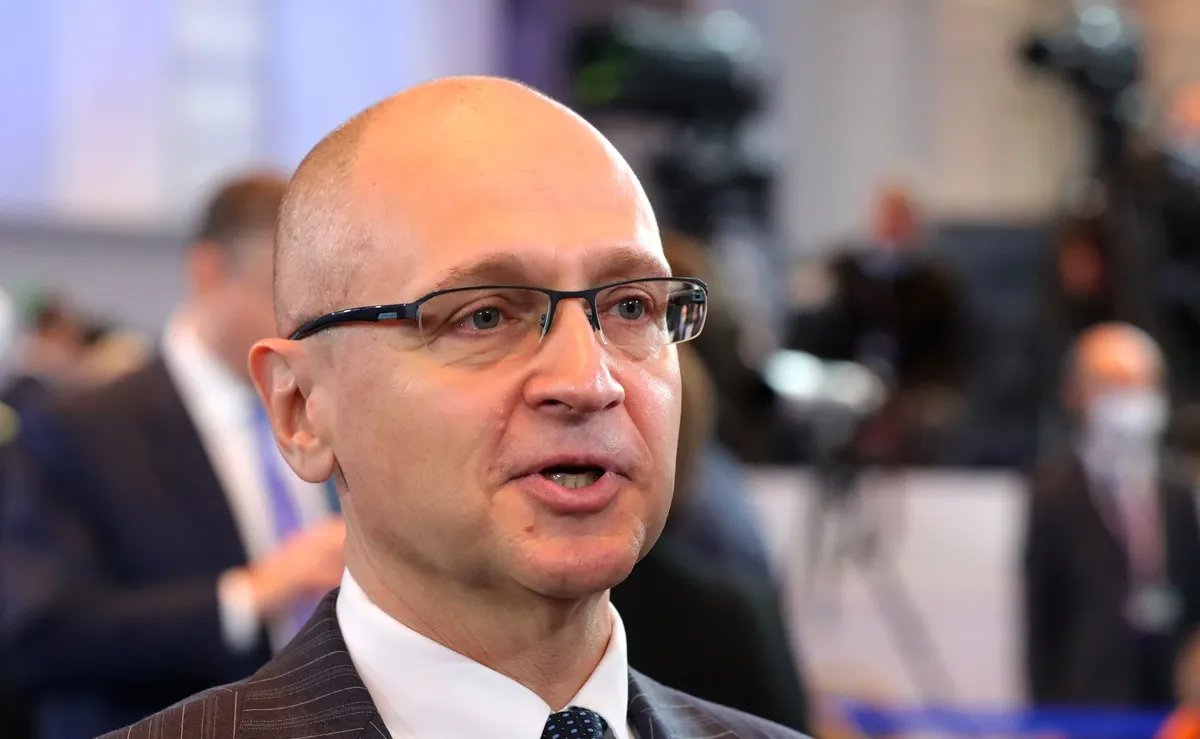
Sergey Kiriyenko. Photo: Kremlin
At the last marathon organised by Znanie titled New Horizons, which took place after the beginning of the war, the audience saw pranksters Vovan and Lexus and Chechnya’s Ramzan Kadyrov up on the stage. Kiriyenko also spoke at the award ceremony for the winners of the competition Leaders of Russia, where he said that “Russia is facing a combined war: the war is running hot because during the special military operation Russian troops are not fighting against the Ukrainian army but against the combined NATO forces. This is a systematic, civilised, if you like, conflict.”
After the start of the war, Kiriyenko visited the occupied territories, including the United Russia “centres of humanitarian aid” in Kherson. Russian Meduza news outlet proclaimed Kiriyenko the “vice king of Donbas”, seeing as he and his staff were given the task of supervising both the occupied territories and “Russia’s reputation after the war”. Meduza’s sources said that the politician would like to become Putin’s successor, however, Fedor Krasheninnikov thinks this is practically impossible:
“He’s just glaringly uncharismatic, with his specific appearance, and unlikability due to his background. He could be a grey cardinal, a shadow figure; as a last resort, he could be prime minister, or head of administration. But I don’t believe at all in him being Putin’s successor, not in today’s Russia”.
However, according to Nikolai Petrov, it is Kiriyenko who is one of the most influential politicians in Russia at the moment. “Today, Kiriyenko is responsible for Russia’s domestic policy and is, essentially, the chair of the Presidential Administration. He’s the most influential bureaucrat and political manager, with the biggest area of work. I see his growing power and his real influence but I don’t think that these things are related only to his work in the “LDPR”. Kiriyenko has just widened the area of his responsibility; it was already big, and now, it includes basically everything going on in the country,” says Petrov.
However, clarifies Krasheninnikov, the politician will not find a way to “wash away” the visits of the occupied territories, “because his crimes aren’t just words”.
In practice, it is Kiriyenko who establishes the occupation system and controls it. “I will, maybe, say a very harsh thing but Kiriyenko, in some ways, resembles [Otto] Eichmann, that is he is a technocrat that controls the entire occupation system. In the occupied territories, he is the one who’s paving the way for the regime and establishing the support of Russia. Despite him not being seen in public very often, he is covered in blood that is being spilt in Ukraine these days,” says the political scientist.
Marat Khusnullin
Khusnulin has received the status of a federal politician relatively recently: he became Deputy Prime Minister of Russia in 2020, after the resignation of Medvedev’s government. At that time, Khusnulin was tasked with the supervision of the annexed Crimea and Sevastopol. Before, the politician served as Deputy Mayor of Moscow for Urban Policy and Construction, and before that, as Tatarstan’s Minister of Construction. The anti-corruption organisation Transparency International accused him of conflict of interest and violating the anti-corruption law at the time of his work in the Republic of Tatarstan. Transparency International claims that Khusnulin worked with firms that indirectly belonged to his mother, UK citizen Roza Khusnulina.
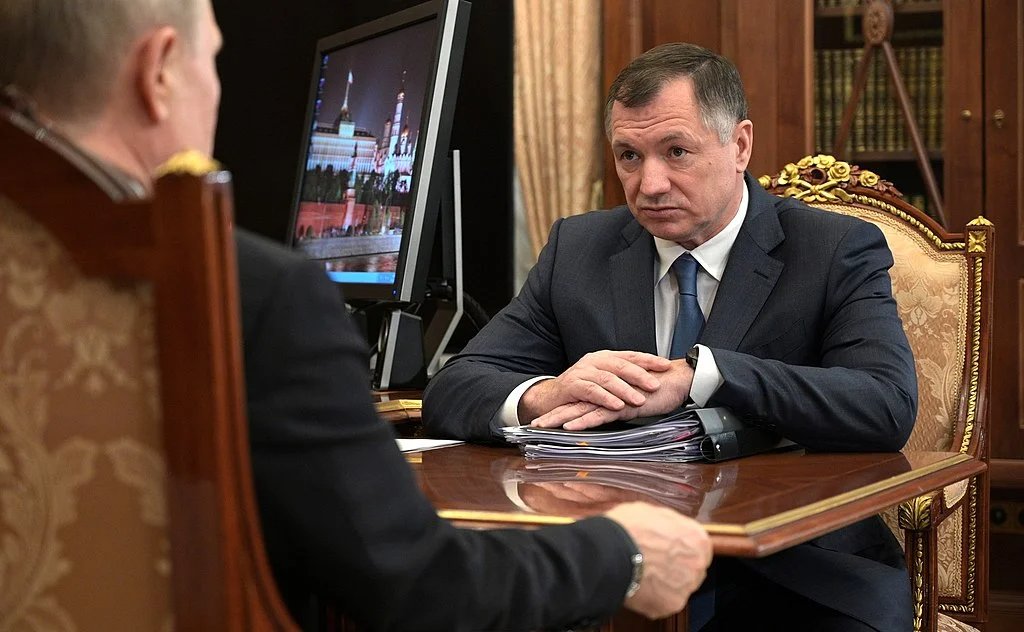
Marat Khusnullin. Photo: Kremlin
In April 2022, Khusnulin was appointed the reconstruction supervisor for the Kherson and Zaporizhzhia regions and the “LDPR”. That means he will be responsible for the complete reconstruction of the cities destroyed by the Russian army. It was Khusnulin who proposed that Mariupol’s Azovstal steelworks, destroyed after a prolonged siege, continued its work as an “industrial park or a recreation spot, but no longer as a metallurgical complex”. He also, as did several other politicians, visited the occupied territories — Mariupol, Volnovakha, and Luhansk.
“Just as Kiriyenko or any other person that comes to the occupied territories for work purposes, Khusnulin commits many more crimes than the people who just make stupid social media posts. These people don’t have any future, and they know it all too well, so that’s why they bet on Putin’s regime lasting forever and their own future in the regime,” says Krasheninnikov.
Political analyst Nikolai Petrov says that in today’s Russia politicians’ influence, including that of Khusnulin’s, can be assessed in different ways: there is the degree of closeness to Putin and the decisions he makes and then there are financial and material flows that a politician controls. Right now, Khusnulin controls construction. “Infrastructural construction is one of the main development directions declared by Putin at the St. Petersburg International Economic Forum. A lot of money is allocated for that. In this sense, Khusnulin is a ready-for-anything crisis manager, his task is to open bases of operation and commit to following orders 24/7, thus, showing his efficiency,” is Petrov’s conclusion.
However, even though Khusnullin holds a big political weight, that does not make him a politician, says the analyst. “He’s an effective executive, not a creator of government policies. There are, for example, Belousov and Novak, who are responsible for the strategy: they actually decide things and have access to the main resource, which is being relatively close to Putin and being able to coordinate their actions with him. Meanwhile, it seems to me that Khusnullin hasn’t changed his functionality one bit, and hasn’t gained anything additional. The only thing is it turned out his area of responsibility could become even more significant than before, when he had just become Deputy Prime Minister,” says Petrov.
Nikolai Patrushev
Nikolai Patrushev, 70, has been serving as Secretary of the Security Council of Russia since 2008 — for almost 15 years. Before that, he was Director of the Federal Security Service for nine years. His son Dmitry Patrushev has been holding the role of Minister of Agriculture of the Russian Federation since 2018. Patrushev’s views are considered to be quite conservative. For example, in 2017, he was talking about “colour revolutions” and said that there will not be any allowed in Russia.
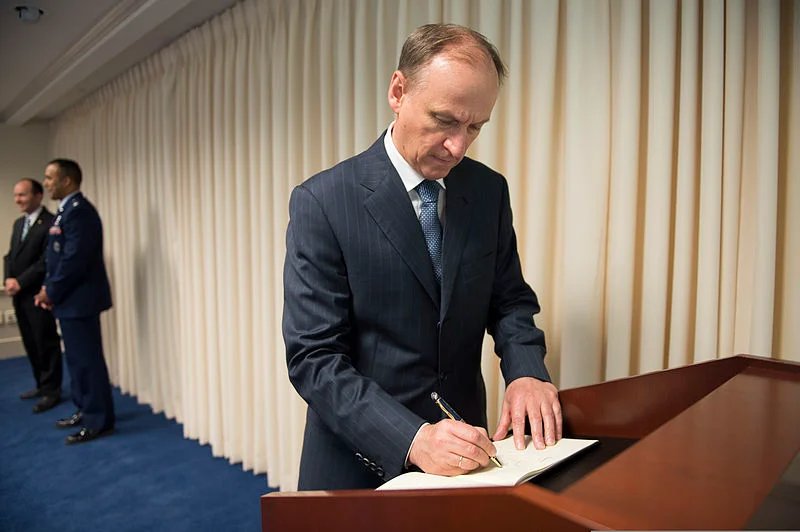
Nikolay Patrushev. Photo: Wikipedia
Patrushev also took part in the extraordinary meeting of the Security Council on the recognition of the “LDPR”, he supported the proposal presented by Putin and the State Duman and said “the Ukrainian conflict was organised by the US, as was the Georgian one”. However, at the same time, he proposed negotiating with US President Joe Biden to resolve the situation.
After the start of the war, Patrushev talked about the alleged American nuclear and bio laboratories located in Ukraine: “The people’s republics of Donetsk and Luhansk, which disagree with the Kyiv regime policies, were under constant fire. Furthermore, there was a real threat of nuclear and bio weapons being created in Ukraine,” Russian news outlet Life quotes Patrushev. Also, during a recent visit to Kaliningrad, Patrushev instructed law enforcement to “more effectively crack down on the activities of ‘unfriendly countries’, who stir up protests in Russia”.
“Patrushev has been the most radical bigot in the government literally since his first public appearances, when even Putin was still more or less liberal. Patrushev commands the Federal Security Service, which already says a lot. Now, he just says the things he’s always thought out loud, meanwhile everyone falls into his line. His convictions are the absolute of putinism, a Putin-like version of fascism. Patrushev bets on violence, on the past, on hatred of the West, hatred of any self-organisation of people, hatred of democracy. He always used to bet on these things in the past but now he’s enjoying the Russia of his dreams,” says Krasheninnikov.
Nikolai Petrov thinks that Patrushev’s current task is the ideological accompaniment of the war — his views are considered to be shared by Putin.
“Patrushev’s role is dissecting the information and feeding it to Putin, creating a background for decisions to be made against, and, simultaneously, developing different options of action that Putin later chooses from. In the context of a confrontation with the West and, especially, Putin’s self-isolation and reduction of the number of people he communicates with, the Security Council’s role has increased greatly,” he says.
Sergey Mironov
Leader of the A Just Russia party Sergey Mironov has held his post since 2013. Before that, he served as Chairman of the Federation Council. During the last two convocations of the State Duma, he led the faction of his party. In January of 2021, Mironov’s party A Just Russia merged with the For Truth and Patriots of Russia parties.
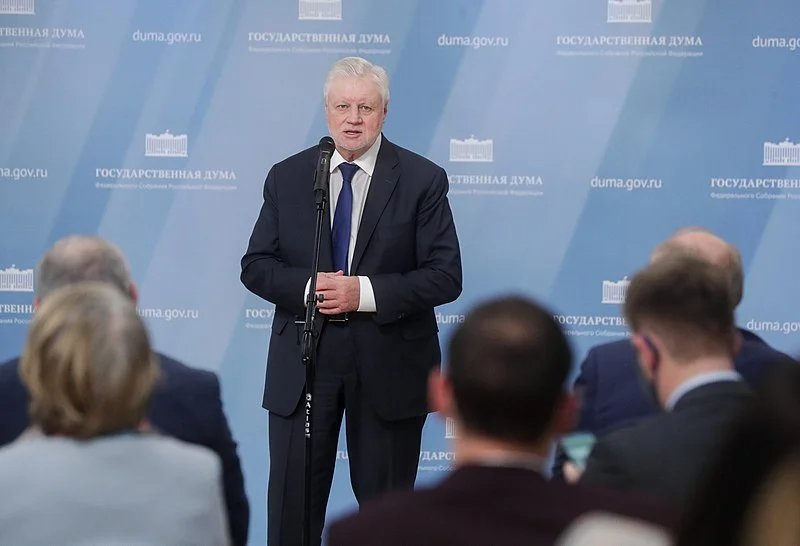
Sergey Mironov. Photo: Duma
After the start of the war in Ukraine, Mironov started to express himself rather harshly on Twitter. There, he discussed occupied territories becoming a part of Russia and called Russian citizens who had left the country “traitors”, proposing to confiscate their property. “We have to arrest the property of all the people leaving Russia. We are promised a record outflow of rich citizens. These are either traitors, or the wealthy who had become rich using criminal methods. Although, one doesn’t contradict the other. I only see the positives in this ‘outcome’. The air will become cleaner!” he wrote in a tweet.
However, political scientists say that Mironov does not influence political decisions in any way. “He isn’t a politician, he’s a bureaucrat and a political manager. People like him play a certain role that is mostly limited to elections. It seems to me Sergey Mironov is a very played out and forgotten character. He says things, makes statements, but it isn’t real politics, it’s an imitation of political activity. Neither Mironov, nor the members of A Just Russia, nor any other political party are able to partake in actual political activities,” notes Nikolai Petrov.
Political scientist Krasheninnikov agrees, however, he considers Mironov’s change in rhetoric interesting. “Mironov’s entire career is connected to Putin, he was moved from place to place without any achievements. He doesn’t possess charisma or other important qualities that a politician should have. Mironov has never been famous for exciting statements or political moves, so his new behaviour looks ridiculous, as if he had found a new PR manager. The changes in his rhetoric are clumsy, unnatural, and insincere, it’s as if they think that this is the way one has to act now. Obviously, all of them are prohibited from taking any stance that doesn’t support the president, and furthermore, they are strongly recommended to take as radical a position as possible,” he says.
Krasheninnikov’s best guess is that Mironov’s behaviour of late is his attempt to clear his name in front of Putin for “flirting with the opposition” during the 2011 protests. “My understanding is Mironov’s career in the last 10 years and his party’s behaviour, their support of the craziest laws — these are all endless penances for considering the idea of Mironov running for presidency during the 2011 protests. It’s possible that Putin has been holding a grudge ever since, and now, Mironov has to show everyone that he won’t betray Putin again. It’s as if he’s saying: “I am not, God forbid, any kind of an opposition figure. I’m even worse than all of you, I’m the biggest chauvinist and militarist, there’s nothing suspicious about me."
